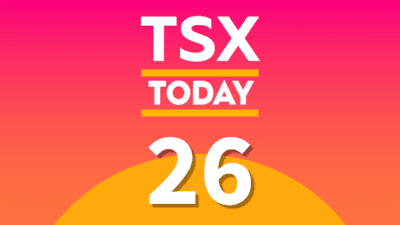In Canada, there are essentially only two national grocery store chains. Loblaw (TSX:L) is Canada’s largest in terms of revenue, with more than 1,000 stores across the country and more than $31 billion in annual revenue. Loblaw is on the verge of making its $12 billion acquisition of Shoppers Drug Mart (TSX:SC) official, which should further strengthen its presence in pharmacy, health and beauty, and in locations where large stores just aren’t possible.
Loblaw’s main competitor on a national level is Sobeys, which is the largest part of Empire Company (TSX:EMP.A). There are currently more than 1,500 Sobeys stores across Canada, and more than 200 Safeway (NYSE:SWY) stores, which the company acquired in 2013 for $5.9 billion. Sobeys has traditionally been strong in the eastern part of Canada, and the Safeway acquisition strengthened its presence in the west, making it a true nationwide chain.
If you’re an investor looking to put money into one of Canada’s largest grocers, Sobeys is far and away the best option. Here’s why.
Focus
Operationally, each chain has a different focus. At Loblaw stores, the strategy is pretty simple. It wants to be known as the store where consumers can get cheap groceries. Loblaw stores regularly match the weekly special prices from other chains. Its superstore concept — big box stores with everything from groceries to Joe Fresh clothing — are somewhat simple in design and don’t offer a whole lot of frills. Its features a generic brand called No Frills, just to further cement its positioning.
Sobeys, meanwhile, has taken almost the opposite approach. Its stores are usually much smaller, more in the mold of neighborhood markets. Focus is on the highly profitable fresh departments, and prices are almost universally higher across the board. Stores are nicer, and focus is on higher end brands and products.
Both companies focus on different parts of the market. But as Canadians continue to improve their diets, Sobeys is far better positioned to take advantage of this trend. Customers associate Sobeys with better food and they associate Loblaws with price.
Valuation
In 2013, Empire earned $5.39 per share, and is estimated to earn $5.19 in 2014. Analyst estimates jump to $6.34 for fiscal 2015, which starts in May. The forward price/earnings ratio is just 11 times, compared to more than 15 times forward earnings for Loblaw. Empire’s book value is $58.22 per share, putting the stock at only 1.2 times book. Loblaw has a book value of just over $24, putting it at almost two times book.
Both companies have big acquisitions that need to be digested, but it’s pretty clear which one is more attractive at this point, at least from a valuation perspective.
Potential growth
The Canadian retail market is pretty saturated, especially with the addition of Target (NYSE:TGT) in 2013. Even though Target’s entry into Canada hasn’t worked out so well thus far, the company is here for the long run. As it grows, this will put pressure on both Sobeys and Loblaw stores going forward.
Sobeys is protected from this going forward, as it signed an agreement with Target to supply all of the grocery, frozen and dairy items for every Target store across Canada. Target will eventually build its own grocery distribution systems in Canada, but these may be delayed for years if operational challenges continue.
Foolish bottom line
When it comes to national grocery store chains, the choice for investors is clear. Sobeys has strengthened its position out west with the Safeway acquisition, and the stock of its parent company trades at cheaper valuations than its chief competitor. Canadian consumers should continue to support its marketing which focuses on making healthier food choices, products which usually enjoy higher margins. Sobeys is poised to outperform in the future, which will send Empire shares higher.







